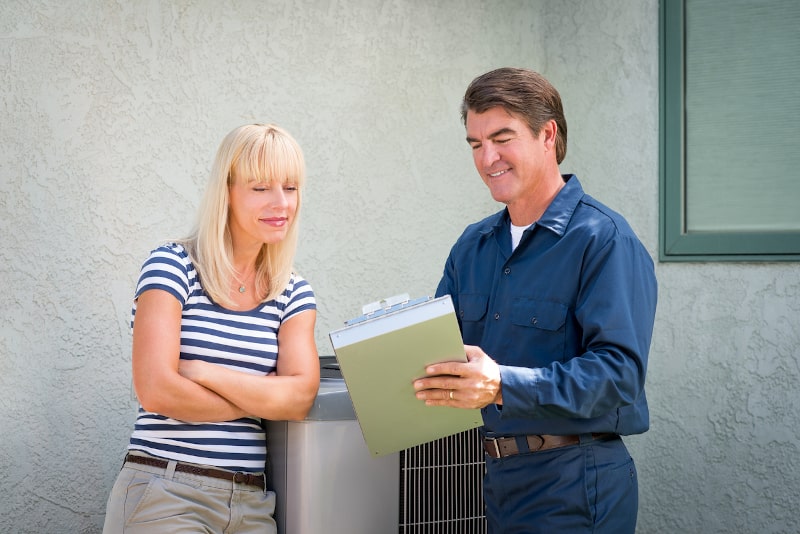Heat pumps are an excellent investment for homeowners looking for reliable heating and cooling. Yet, Dover, DE, residents may encounter occasional water leakage from their heat pumps. Let’s explore the potential causes of heat pump water leaks and the steps you can take to address them.
Poor Drainage or Blockages
Your heat pump produces moisture that you must drain away. Normally, the moisture flows into a condensate pan and then down a drain line. However, the drain line may become obstructed over time, leading to clogs.
Biological growth may prevent the water from flowing down the drain line, leading to a possible spill onto the floor. Consider seeking the expertise of a professional to remove the obstruction and clear the drain line, which is a simple and inexpensive solution.
If you have a new heat pump, a drainage issue may not cause the clog but rather faulty installation. The drain line may be too long or designed to work with gravity. An HVAC service technician will evaluate your drain line and determine the best course of action.
Cracked Overflow Pan
If there’s a crack in the overflow pan, water will escape and damage your floors. Notably, cracks in the overflow pan are more common than one might imagine. The pan is continuously exposed to water, making it prone to rust or corrosion.
Thankfully, this problem is straightforward to resolve. If you notice water accumulating on your floor, examining your drain pan is advisable. We offer dependable heating repair and replacement services to assist as well.
Dirty Heat Pump Coil
A potential cause of your heat pump leakage could be a dirt-covered coil. Inside your system is a refrigerant-cooled evaporator coil that removes particulates from the air and directs it out of your heat pump. However, if the coil becomes clogged with dirt and debris, it can obstruct drainage.
Consequently, particulates may bypass the drain and drip off the evaporator coil, resulting in a leak. The remedy is simple, arrange a professional inspection of your heat pump to determine whether it requires a deep cleaning.
Poor Heat Pump Maintenance
Although it may be tempting to overlook heat pump maintenance, regular upkeep is essential to ensure its efficient operation. Proper maintenance involves scheduling routine check-ups to identify potential problems in their early stages. With their expertise, HVAC professionals can spot issues that you, as a homeowner, may miss.
Since it’s likely your primary source of comfort, the best course of action is to have it inspected and maintained twice a year by a trusted heating and cooling company. If there are any problems in between visits, reach out and schedule a follow-up repair appointment.
Frozen Evaporator Coils
Water leakage around the indoor unit may also stem from a frozen evaporator coil. This component, situated in the indoor unit of your heat pump, plays a significant role in regulating your home’s temperature. It helps in either heating or cooling it, depending on the season.
During cooling mode, refrigerant courses through the evaporator coil to extract heat from the warm air in your home. Excessively cold refrigerant can cause ice to accumulate on the evaporator coil.
As soon as the heat pump ceases to cool your home’s air, the ice will begin to thaw, resulting in excess water spilling over from the drain pan. It also has the potential to leak into your system and result in even more damage.
Maintaining a clean air filter should help prevent refrigerant freezing with enough airflow. If the issue persists, it is best to seek outside assistance.
If you notice signs of water leakage in and around your heat pump, reach out for help from a professional HVAC service technician to diagnose and fix the problem. Griffith Energy Services has proudly provided expert services for over a century to the local community. For reliable heat pump installation, repair and maintenance services, contact our pros today.
Image provided by iStock




